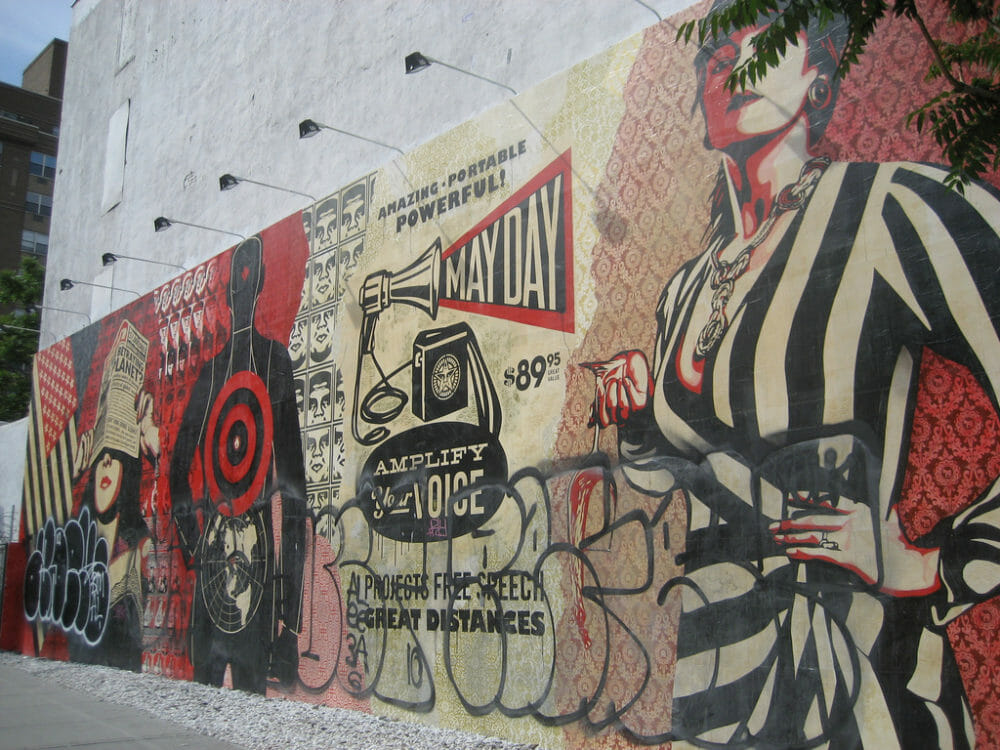The Short film Archivesbig question with generative AI these days is whether tools like ChatGPT will widen the inequality gap or empower workers with newfound skills and abilities.
A study from MIT's Department of Economics designed to answer this question found that participants using OpenAI's ChatGPT increased productivity and the likelihood that they would use ChatGPT in future tasks. In the controlled study, this implies that "the technology will be more strongly complementary to human workers," meaning it favors tools like ChatGPT as a way to empower workers. But how these tools are actually implemented in the real world remains uncertain.
SEE ALSO: How generative AI will affect the creator economyUnlike earlier AI tools which raised concerns about automation of "routine" tasks, deep learning tools like ChatGPT are capable of executing more complex, creative tasks like writing and design. How generative AI is implemented in the workforce could negatively or positively impact labor inequality. "Inequalities between workers could either decrease if lower-ability workers are supported more by ChatGPT or increase if higher-ability workers have the skills necessary to take advantage of the new technology," said the study.
The experiment comprised 453 college-educated professional and randomly assigned half of the participants with ChatGPT after completing their first assignment. The assignments were writing-based tasks including press releases, short reports, and "delicate emails," mimicking those that grant writers, marketers, consultants, data analysts, and HR professionals would do in their day-to-day work.
The study found the group that was given access to ChatGPT decreased in time taken to accomplish a task by 11 minutes and increased in quality. Notably, the performance of the treatment group (those using ChatGPT) increased between their first assignment (without ChatGPT) and subsequent assignments (with ChatGPT), which the study concluded could close the inequality gap between skilled and unskilled labor.
This has been anecdotally true for anyone using ChatGPT. But the study provides hard evidence that workers armed with ChatGPT can be more productive and perform tasks better. Yet, how this plays out in the real world remains to be seen. Is this proof that ChatGPT should be taken as a new tool in workers' toolkits? Or will companies interpret this as evidence that generative AI can successfully replace entire jobs? Ultimately, this study underscores how the implementation of generative AI depends on a wildly complex and unpredictable factor: human nature.
Topics ChatGPT Work
(Editor: {typename type="name"/})
 SpaceX's Starlink will provide free satellite internet to families in Texas school district
SpaceX's Starlink will provide free satellite internet to families in Texas school district
 'The Big Bang Theory' will continue to haunt your television for years to come
'The Big Bang Theory' will continue to haunt your television for years to come
 Emoji are currently either male or female — but that could be about to change
Emoji are currently either male or female — but that could be about to change
 The internet casts 'Trump
The internet casts 'Trump
 The Baffler’s May Day Round Up
The Baffler’s May Day Round Up
Theresa May tells Vogue why 'gentleman' Donald Trump held her hand
 Actions speak louder than words. And, when photographs of Theresa May and Donald Trump holding hands
...[Details]
Actions speak louder than words. And, when photographs of Theresa May and Donald Trump holding hands
...[Details]
Apple finally realizes 16GB of storage on the iPhone SE isn't enough for anything
 Along with announcing all new red iPhones, Apple is also giving the 4-inch iPhone SE a small, but ve
...[Details]
Along with announcing all new red iPhones, Apple is also giving the 4-inch iPhone SE a small, but ve
...[Details]
'Sesame Street' has brilliantly trolled Donald Trump for decades
 It's always a sunny day when Sesame Streetis trolling President Donald Trump. And though you might n
...[Details]
It's always a sunny day when Sesame Streetis trolling President Donald Trump. And though you might n
...[Details]
The fat bears are already extremely fat
 The fat bears exemplify success.Many of the brown bears at Katmai National Park and Preserve have pu
...[Details]
The fat bears exemplify success.Many of the brown bears at Katmai National Park and Preserve have pu
...[Details]
Mariah Carey's holiday gift to us will be an 'All I Want for Christmas Is You' movie
 Mariah Carey is ready to make your Christmas wish come true. The musician has gifted us the first te
...[Details]
Mariah Carey is ready to make your Christmas wish come true. The musician has gifted us the first te
...[Details]
 Ever wish you could record a Snapchat video with no hands? Good news: it's not only possible, it's e
...[Details]
Ever wish you could record a Snapchat video with no hands? Good news: it's not only possible, it's e
...[Details]
The iPhone 8 sounds like it's the ultimate homage to the original
 You've already heard all about the iPhone 8's front -- it's rumored to have an OLED display with cur
...[Details]
You've already heard all about the iPhone 8's front -- it's rumored to have an OLED display with cur
...[Details]
Alienware M16 Gaming Laptop deal: Save $560
 GET $560 OFF:Apr. 14th, the Alienware M16 240Hz AMD Ryzen 9 7000 16GB RAM RTX 4080 1TB SSD Gaming La
...[Details]
GET $560 OFF:Apr. 14th, the Alienware M16 240Hz AMD Ryzen 9 7000 16GB RAM RTX 4080 1TB SSD Gaming La
...[Details]
Emoji are currently either male or female — but that could be about to change
 There are currently no emoji for people who don't identify as male or female — but that could
...[Details]
There are currently no emoji for people who don't identify as male or female — but that could
...[Details]
Character AI reveals AvatarFX, a new AI video generator

Reporter instantly regrets attempting to broadcast beside a large puddle

接受PR>=1、BR>=1,流量相当,内容相关类链接。